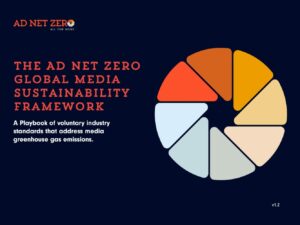
Paris, 28 October 2020 – On 22 October 2020, a coalition of French associations representing the online advertising ecosystem (IAB France, MMAF, SRI, UDECAM) filed a complaint with the French Autorité de la concurrence against Apple over certain iOS 14 changes due to be introduced early next year. The complaint was accompanied by a request for interim measures to prevent Apple from inflicting serious harm to the mobile advertising industry.
Last June, Apple announced that starting with iOS 14, app developers wishing to access the device’s so-called Identifier for Advertisers (“IDFA”) and/or track the user would need to first obtain opt-in user permission through an Apple-designed pop-up box. The requirement would apply to the nearly two million apps available for download from the App Store. The particular design of the pop-up means it does not comply with the requirements of European privacy and data protection law. On its part, Apple may deliver personalized advertising to iOS users without affirmative user consent (the default setting is opt-in).
In September Apple announced it would delay the iOS 14 tracking changes until “early next year.” Most industry experts expect a very low user opt-in rate once the changes are implemented, primarily because of the scary language deployed in the Apple pop-up box, which developers will have no possibility to customize.
What Apple’s upcoming changes mean in practice
The IDFA is a random number unique for each iOS device, introduced in 2012 by Apple itself to enable privacy-conscious advertising. The IDFA is the primary method to pseudonymously identify iOS users, which is crucial for a number of legitimate advertising use cases, such as ad personalization, measuring campaign effectiveness, and limiting the number of times the same ad is shown to the user. In the absence of the IDFA (or a valid replacement thereof), the ability to perform these essential functions will be severely limited. The effects will be devastating: publishers will see their ad revenue decline (by up to 50%), marketers will be unable to measure and optimize their campaigns, while many ad tech vendors may go out of business. Many ad-funded apps may eventually shift to a user- payment model, whereby Apple gets a 30% commission on user payments. Ultimately, iOS users are likely to suffer by having access to less (or lower quality) free content.
Why Apple’s one-sided use of privacy to justify its anti-competitive behaviour doesn’t work
Apple has marketed its policy change as a win for user privacy. While the Coalition cares deeply about privacy, this case is not about privacy; it is about Apple abusing its market power to distort competition. In any event, Apple’s apparent concern for privacy fails to convince.
We have strong reasons to believe that once implemented, Apple’s conduct will be in breach of French and EU competition law as it will have both exploitative and exclusionary effects. Regrettably, the Coalition’s attempts to engage Apple in a collaborative effort to make the pop- up comply with the EU privacy and data protection legislation have been unproductive so far. We have decided to file a formal complaint with the Autorité, which we trust will give due consideration to our concerns.
With the clock already ticking down until Apple makes implementation of the pop-up mandatory for all apps on the App Store early next year, we also asked the Autorité to impose interim measures on Apple, ordering it to engage in constructive dialogue with the industry to find an acceptable solution for obtaining user permission/consent to tracking that is in accordance with the requirements of the EU privacy legislation, while being less disruptive for users and less damaging for competition. In the meantime, Apple should be ordered to refrain from requiring the use of its proprietary pop-up box.
-
Apple’s pop-up box does not even meet the standards of EU privacy legislation. A consent granted using the pop-up box would not meet the standard for “freely-given, specific, informed” consent required by the ePrivacy Directive and GDPR. The pop- up box does not uphold user autonomy, as it nudges users to opt out of tracking, and does not provide sufficient information for user consent to be considered informed. In practice, this means that app developers in the EU will have to surface two separate pop-ups, one for Apple and one for EU privacy legislation. This will increase user frustration and introduce inefficiencies.
-
Apple holds itself to a lower standard. The default option on iPhones is that Apple may deliver personalized advertising – a default setting which may not even be in line with EU privacy legislation. For the purposes of delivering personalized advertising (for which the user is opted in) Apple uses personal data such as name, age and address of the user. The apps a user downloads and her purchasing activity (in-app purchases and subscriptions) are also used by Apple to deliver targeted advertising. Launched in 2016, Apple’s advertising business on iOS is already estimated at $ 2-4 billion, and is expected to further grow once Apple’s iOS 14 tracking changes are implemented.
Questions and answers
Q: Why is this an important case?
This case has the potential to affect millions of apps distributed in the App Store. This is likely to be the first case where a competition authority will address the increasingly important issue of digital platforms invoking questionable privacy considerations to justify anti- competitive conduct.
Q: Why did you file a complaint to the French Autorité de la concurrence?
The Autorité is a highly-skilled competition authority, and has already handled major cases in the tech industry. In addition, the Autorité has a track record of adopting interim measures where the conduct in question is likely to infringe competition law and risks creating serious and imminent harm.
Q: Are you opposed to privacy and data protection?
Absolutely not, the Coalition cares about privacy and data protection law, what we oppose is Apple’s unilateral decision to de facto eliminate access to the IDFA via a pop-up box that is not in line with the requirements of EU privacy legislation, and which will harm most actors in the mobile advertising ecosystem, while not impairing its own ability to collect and process personal data for digital advertising. In the EU, Consent Management Platforms already provide iOS users with choice and control over the collection and processing of their data (including the IDFA) for advertising purposes in line with the requirements of EU privacy legislation. There is no need for an additional pop-up box designed by Apple. Our aim is to defend and strengthen existing laws and regulations in the EU while preventing individual actors from becoming de facto privacy regulators for a whole industry.
Q: What is the timeframe of your legal action?
We have asked for interim measures as intervention is extremely urgent. It will likely take a few months for the Autorité to render its decision over interim measures, but we are confident that the Autorité will act swiftly, before Apple implements its planned iOS 14 tracking changes early next year.
Q: What happens if the Autorité does not grant interim measures?
We expect the Autorité to continue to investigate, and act on, our complaint. If Apple implements its planned iOS 14 tracking changes, it could expose itself to a potential infringement decision of the Autorité and a fine. Apple could also expose itself to actions for damages by the companies whose business would have been harmed by its conduct.
Q: Are you open to dialogue with Apple?
Absolutely, we asked the Autorité to impose interim measures on Apple, ordering it to engage in constructive dialogue with the industry to find an acceptable solution for obtaining use permission/consent to tracking that is in accordance with the requirements of the EU privacy legislation, while being less disruptive for users and less damaging for competition.
Press Contact
Jessy Doin
Mail : [email protected]


